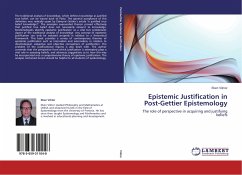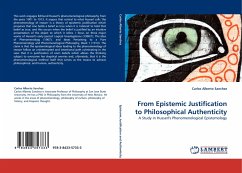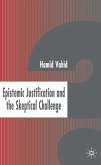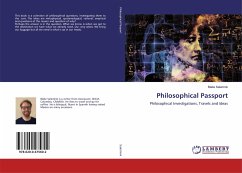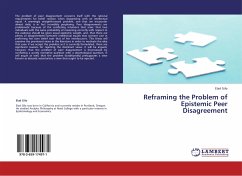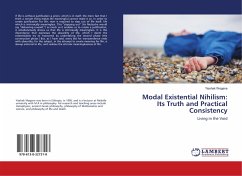The traditional analysis of knowledge, which defines knowledge as justified true belief, can be traced back to Plato. The general acceptance of this definition was radically upset by Edmund Gettier's article 'Is justified true belief knowledge?'. The examples expounded therein proved effectively that justified true belief does not necessarily amount to knowledge. Epistemologists identify epistemic justification as a vital but problematic aspect of the traditional analysis of knowledge. Any concept of epistemic justification can only be assessed properly in relation to a theoretical framework. This book provides a survey of contemporary theories of epistemic justification such as internalism and externalism, in relation to deontological, subjective and objective conceptions of justification. The problem of the justificational regress is also dealt with. The author contends that the perspective from which justification is attempted plays a vital role in assessing beliefs, and advances suggestions as to how this may be incorporated into a comprehensive theory of epistemic justification. The analysis contained herein should be helpful to all students of epistemology.
Bitte wählen Sie Ihr Anliegen aus.
Rechnungen
Retourenschein anfordern
Bestellstatus
Storno

